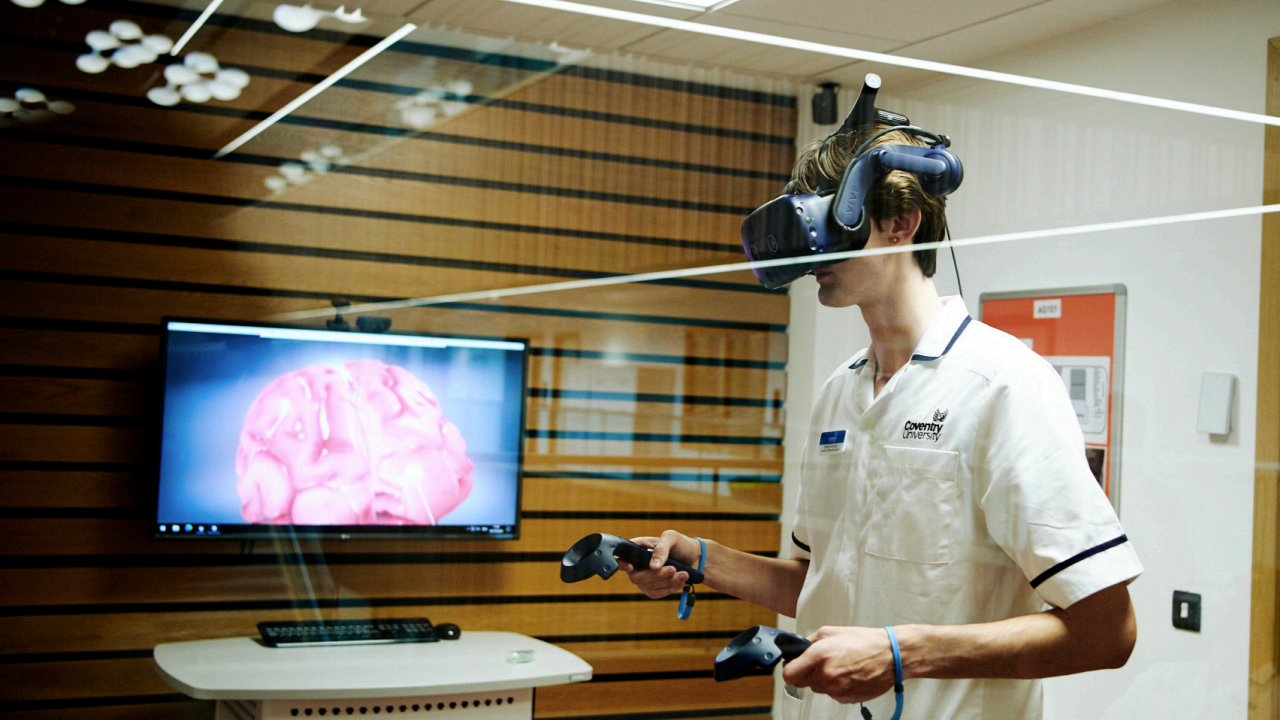Vodafone says £1bn is required to get 5G into UK hospitals
A new health-focused report from Vodafone has found significant support for 5G across a number of different health settings, from ambulance care to remote appointments.

Get up to speed with 5G, and discover the latest deals, news, and insight!
You are now subscribed
Your newsletter sign-up was successful
In a new report from Vodafone, titled ‘Better health, connected health’, the company polled 2,000 people, and found a high level of public comfort with new technology, and “strong support” for many of the new possibilities that technology opens up in the NHS and social care settings.
And in one of a number of recommendations to the government, Vodafone has said that the UK government should invest £1bn to bring 5G to every hospital in England by 2025.
"NHS hospitals promised by the government by 2030 should be fully equipped with the latest digital technology, including 5G."
Anne Sheehan, Vodafone.
“Our polling shows very strong public support for the Government to increase the use of the latest digital technology in the NHS so that we future-proof the UK healthcare sector. In particular, the public believes that the 40 new NHS hospitals promised by the government by 2030 should be fully equipped with the latest digital technology, including 5G,” said Anne Sheehan, business director at Vodafone UK. “This technology is already available and the NHS should take advantage of it now. We have a perfect opportunity to ensure that digital technology is designed-in from the start, so that the hospitals of the future can use the technology of the future.”
Patients and staff stand to benefit
The report from Vodafone Our poll suggests an increased willingness to use video calling technology for health appointments, with 57% of respondents saying they would be comfortable having some medical appointments remotely, with just 26% disagreeing.
"Both NHS patients and staff stand to benefit from these technological innovations."
Anne Sheehan, Vodafone.
“The possibilities unleashed by 5G and IoT touch almost every part of the healthcare system, from the visible (remote surgery, or 5G drones carrying transplant organs and drugs between hospitals) to the unseen but vital IoT-enabled hospital equipment management systems that use sensors to automatically monitor stock levels,” explained Sheehan. “Both NHS patients and staff stand to benefit from these technological innovations.”
Younger people were more likely than older people to be enthusiastic about remote consultations, with 64% of 18-34-year-olds, and 62% of 35-54-year-olds saying they would be comfortable with having them after the pandemic is over. But even in the over-55s, the report found that 49% were comfortable with the idea.
Vodafone’s poll showed particularly high levels of support for 5G connected ambulances, with 80% supporting the idea, which Vodafone says will require £10m to 5G-enable ten ambulances per ambulance trust in England, as a starting point. With other recommendations in the report including a call for a further £500m of investment from the UK government in the creation of 5G healthcare applications, created via regional innovation centres, to get even more out of the potential of 5G connectivity.
Get up to speed with 5G, and discover the latest deals, news, and insight!
You can read the report in full here.
- Why 5G small cells are vital for mmWave 5G
- Millimeter wave: the secret sauce behind 5G
- Get updates on the hottest 5G stocks
- Discover the truth behind 5G dangers
- 5G towers: everything you need to know
Dan is a British journalist with 20 years of experience in the design and tech sectors, producing content for the likes of Microsoft, Adobe, Dell and The Sunday Times. In 2012 he helped launch the world's number one design blog, Creative Bloq. Dan is now editor-in-chief at 5Gradar, where he oversees news, insight and reviews, providing an invaluable resource for anyone looking to stay up-to-date with the key issues facing 5G.

